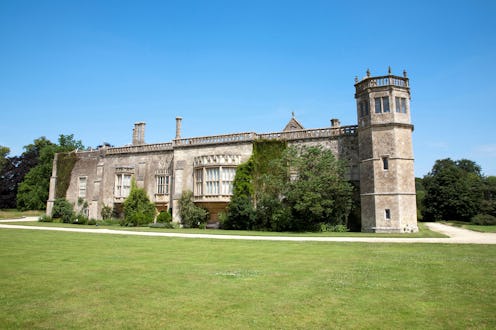Social Enterprise
6 National Trust Properties With Links To Slavery & Colonialism
The charity has published a report detailing how 93 of its homes are directly associated with colonialism.

There is nothing quite as quintessentially British as country homes, big estates in green pastures, ladies, lords, and of course, Britain’s colonial past. Now, in a new report which intends to “address our histories of colonialism and historic slavery” the National Trust lays out which of its properties are linked to the transatlantic slave trade and colonialism.
The National Trust, a charity established in 1895, looks after some of Britain's best-known protected houses, castles and parks. If you’ve ever wondered where your favourite British historical drama was filmed, the chances are it’s in one of their properties. The National Trust has now revealed that houses where things like Harry Potter and The Crown were filmed have ties to slavery and colonialism. In fact, out of the 300 houses in their care, 93 have links to slavery and colonialism.
“The wealth of a number of the owners of our places and collections came directly from owning sugar plantations, and the enslaved people who worked them,” the National Trust report states. “Parklands, gardens, houses and luxury objects were paid for by direct links to profits made from slavery and the compensation that was paid out to slave owners after abolition,” it adds.
It is a reminder that Britain was built on the free labour of enslaved Africans. So although it’s easy to romanticise a quaint British historical buildings, the National Trust’s report is an important reminder of the violent history behind these 93 houses and Britain’s colonial legacy. Here are six National Trust houses you may recognise which have links to slavery and colonialism.
Lacock Abbey, Wiltshire
Probably one of the National Trust’s most popular sites, Lacock Abbey is where corridors and classrooms were filmed in Harry Potter. Downton Abbey and the 1995's Pride & Prejudice was also filmed here. Per the National Trust report, the Abbey was leased in the 1820s by John Rock Grosett who owned three plantations in Jamaica. After leaving Lacock Abbey, he received compensation for the loss of 916 enslaved people following the abolition of slavery.
Penrhyn Castle, Bangor
The country House in Bangor was owned by the Pennants. Richard Pennant was a Member of Parliament who owned six plantations in Jamaica. Per the Black History Month website, Pennant also opposed the abolition of slavery and formed a committee with other plantation owners to try and prevent it. His cousin, who inherited the estate after Pennant's death received compensation for the loss of 764 enslaved people, following the abolition of slavery. The castle has served as a filming location for the Game of Thrones prequel.
Basildon Park, Berkshire
The country home where scenes of 2005's Pride and Prejudice starring Keira Knightly were filmed, was owned by Francis Sykes – who made his wealth in the East India Trading Company. The EITC was a colonial enterprise which, per the Guardian, "plundered and subjugated" large areas of South Asia. Basildon Park was also home to a Black person named Thomas Radakissan who was a servant at the property in the 18th century, per the report.
Chartwell, Kent
Wartime prime minister Winston Churchill lived in Chartwell in Kent for over forty years up until his death. As the report notes, he served as Secretary of State for the Colonies from 1921-1922. In his life, he was opposed the granting of independence to India, voting against the India Bill in 1935 which gave the country some powers of self-governance and writing to Prime Minister Clement Attlee in 1947 arguing the country should not be gain independence. He was also Prime Minister during the Bengal Famine of 1943, and it has been argued that his policies contributed to it or worsened it.
Compton Castle and Greenway, Devon
The holiday home of much-loved crime author Agatha Christie had ties to the Virginia Company of Plymouth, via its owners The Gilbert family. This company was chartered on an expedition to colonise the east coast of America, the report states.
Stowe, Buckinghamshire
Stowe, where Netflix’s The Crown has filmed was owned by the same family from 1589 until 1921, they also owned enslaved people. The royal family itself is inextricably linked to colonialism, too. Not only were colonial exploits frequently done in the name of the crown, but the royal family has acquired much of its wealth from slavery and empire, as CEO of Republic (a campaign group calling for the abolition of the monarchy) Graham Smith told Newsweek.